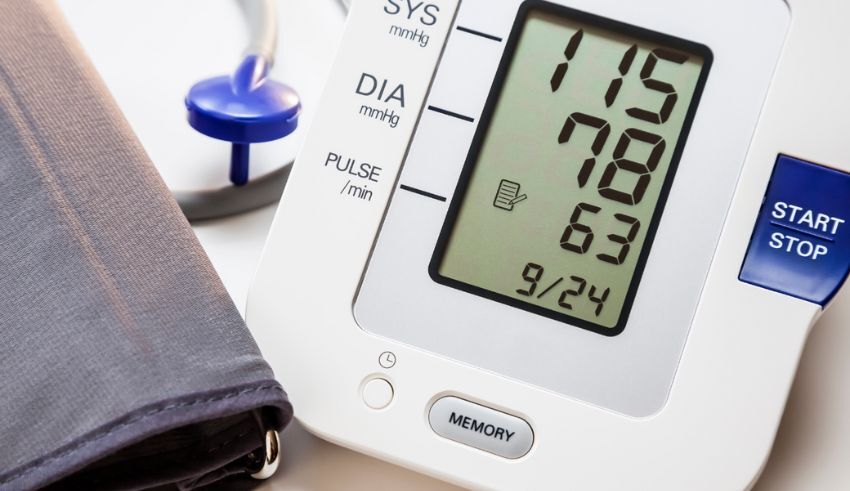
Because blood pressure usually shows no symptoms until major damage has already happened, it is sometimes referred to as the “silent killer.” Characterized by the constant force of blood pushing against the walls of your arteries, this disorder can silently cause kidney failure, heart disease, and stroke. Regular blood pressure monitoring is essential to preserving ideal health all your life since its sneaky character. Preventing major medical problems mostly depends on knowing what your numbers indicate and how they vary with age.
Basis of Blood Pressure: Know the Numbers
We must understand the foundations before we go into the details of blood pressure by age. Two numbers—systolic and diastolic—rule blood pressure recording. The one on top, the systolic value, gauges arterial pressure during a heart beat. On the bottom, the diastolic value gauges the pressure your heart generates at rest between beats. These figures taken together give a picture of your cardiovascular condition.
A 120/80 mm Hg blood pressure reading, for example, indicates a systolic pressure of 120 and a diastolic pressure of 80. With clear recommendations on what is normal, raised, or dangerously high, the American Heart Association (AHA) helps one understand these readings.
Adult Normal Blood Pressure: An All Around Guid
The AHA sets blood pressure ranges for adults twenty years of age and above as follows:
- Normal is systolic less than 120 and diastolic less than 80; elevated is systolic between 120-129 and diastolic less than 80.Stage 1 Hypertension: Either systolic between 130-139 or diastolic between 80-89.
- Stage 2 Hypertension: Systolic at least 140 or diastolic at least 90Hypertensive Crisis: Systolic above 180 and/or diastolic over 120
These categories provide a guidance for knowing your blood pressure, however individual differences can arise. Finding your normal and making sure your blood pressure stays within a reasonable range depend on regular visits to your doctor.
Children’s and adolescents’ blood pressure: a complex picture
Unlike adults, whose blood pressure recommendations are somewhat simple, figuring out what is normal for kids and teenagers is more difficult. Young people’s blood pressure varies greatly depending on age, height, and weight; so, parents should get reliable readings and assessments from a pediatrician. Children’s blood pressure patterns change as they develop, and what is normal changes as well; hence, regular monitoring becomes even more crucial throughout these formative years.
Peters Affecting Blood Pressure: Beyond Age
Blood pressure is influenced by several variables; some of which you can control and others of which you cannot. Knowing these elements will enable you to keep good blood pressure by acting early.
- Age: Your blood pressure typically rises with aging. This is the result of changes in the suppleness of your blood vessels and the whole impact of your lifestyle.
- Regarding genetics: Your chance of high blood pressure is strongly influenced by family history. You run increased risk developing hypertension if close relatives have it.
- Lifestyle Preferences: Blood pressure is substantially influenced by diet, exercise, smoking, alcohol, and stress levels. Changing to heart-healthy behaviors can help control your statistics.
- Drugs: Certain pharmaceuticals, including over-the-counter treatments and prescriptions for various diseases, can increase your blood pressure. Talk always about possible side effects with your doctor.
Learning to Control Your Blood Pressure: An Everlasting Dedication
Maintaining a normal blood pressure is an annual commitment rather than a one-time endeavor. Managing your blood pressure most successfully is by changing your lifestyle to be heart-healthy. A heart-healthy lifestyle depends critically on regular exercise, a balanced diet high in fruits, vegetables, and whole grains, and stress management. Maintaining a healthy range for your blood pressure also depends critically on cutting back on sodium, avoiding too much alcohol, and not smoking.
Should you receive a high blood pressure diagnosis, you should closely collaborate with your doctor to create a management strategy. This could call for modifications in your way of living as well as maybe medication to maintain a reasonable blood pressure. Recall that your chances of preventing major medical difficulties down the line are higher the earlier you begin monitoring your blood pressure.
Conclusion: Empower Yourself Using Information
A great weapon in the battle against cardiovascular disease is knowledge of your blood pressure and what it indicates. You may greatly lower your chance of major health problems and have a longer, better life by keeping educated, routinely testing your blood pressure, and making good lifestyle choices. Recall that information is power; in terms of blood pressure, this is the power to guard your heart and general health.



